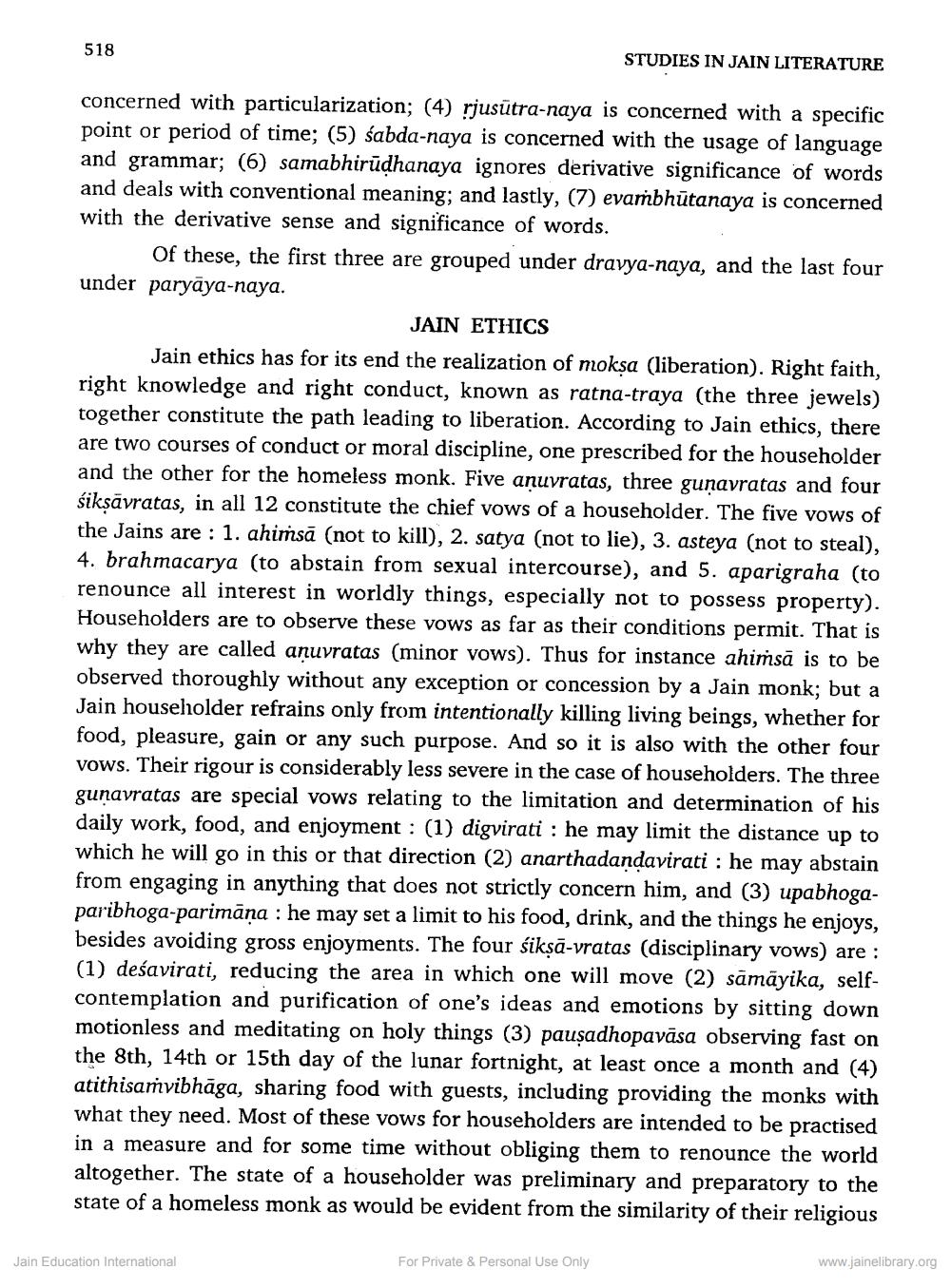________________ 518 STUDIES IN JAIN LITERATURE concerned with particularization; (4) rjusutra-naya is concerned with a specific point or period of time; (5) sabda-naya is concerned with the usage of language and grammar; (6) samabhirudhanaya ignores derivative significance of words and deals with conventional meaning; and lastly, (7) evambhutanaya is concerned with the derivative sense and significance of words. Of these, the first three are grouped under dravya-naya, and the last four under paryaya-naya. JAIN ETHICS Jain ethics has for its end the realization of moksa (liberation). Right faith, right knowledge and right conduct, known as ratna-traya (the three jewels) together constitute the path leading to liberation. According to Jain ethics, there are two courses of conduct or moral discipline, one prescribed for the householder and the other for the homeless monk. Five anuvratas, three gunavratas and four siksavratas, in all 12 constitute the chief vows of a householder. The five vows of the Jains are : 1. ahimsa (not to kill), 2. satya (not to lie), 3. asteya (not to steal), 4. brahmacarya (to abstain from sexual intercourse), and 5. aparigraha (to renounce all interest in worldly things, especially not to possess property). Householders are to observe these vows as far as their conditions permit. That is why they are called anuvratas (minor vows). Thus for instance ahimsa is to be observed thoroughly without any exception or concession by a Jain monk; but a Jain houseliolder refrains only from intentionally killing living beings, whether for food, pleasure, gain or any such purpose. And so it is also with the other four vows. Their rigour is considerably less severe in the case of householders. The three gunavratas are special vows relating to the limitation and determination of his daily work, food, and enjoyment : (1) digvirati : he may limit the distance up to which he will go in this or that direction (2) anarthadandavirati : he may abstain from engaging in anything that does not strictly concern him, and (3) upabhogaparibhoga-parimana : he may set a limit to his food, drink, and the things he enjoys, besides avoiding gross enjoyments. The four siksa-vratas (disciplinary vows) are : (1) desavirati, reducing the area in which one will move (2) samayika, selfcontemplation and purification of one's ideas and emotions by sitting down motionless and meditating on holy things (3) pausadhopavasa observing fast on the 8th, 14th or 15th day of the lunar fortnight, at least once a month and (4) atithisamvibhaga, sharing food with guests, including providing the monks with what they need. Most of these vows for householders are intended to be practised in a measure and for some time without obliging them to renounce the world altogether. The state of a householder was preliminary and preparatory to the state of a homeless monk as would be evident from the similarity of their religious www.jainelibrary.org Jain Education International For Private & Personal Use Only




